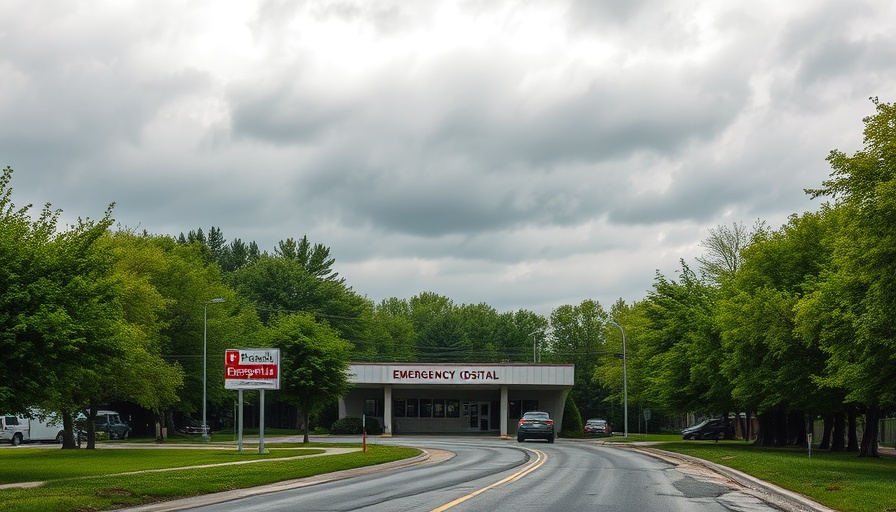
The Impending Crisis: Rural Hospitals in Jeopardy
The looming threat of a $1 trillion cut to Medicaid could signal the demise of numerous rural healthcare facilities across the country. As reported, rural hospitals, already struggling financially, could face closures that leave patients without immediate access to essential medical services. In communities like Webster County, Nebraska, residents fear that a government decision could transform their local hospital visit from a quick jaunt to an arduous journey, potentially endangering lives.
The Role of Medicaid in Rural Healthcare
Medicaid plays a critical role in keeping many rural hospitals afloat. More than 300 institutions could shutter if current legislative changes pass, with serious ramifications for the communities they serve. Additionally, states and health advocates are ringing alarm bells, arguing that the proposed cuts to Medicaid jeopardize not just the facilities but the well-being of vulnerable populations, including the elderly and low-income families.
Financial Impact: Too Close for Comfort
Rural hospitals typically rely on Medicaid reimbursements for a large portion of their funding. For instance, a staggering 30% of the patients at Day Kimball Hospital in Connecticut receive Medicaid benefits. CEO R. Kyle Kramer noted the severe constraints the proposed Senate bill would impose on their financial health, further complicating their ability to provide necessary health services.
Community Voices: The Human Element
The broader ramifications of these Medicaid cuts resonate deeply within affected communities. Individuals like Bruce Shay express anxiety about potential delays in care that could transform minor medical needs into emergencies, endangering lives. This trend exemplifies the need for sustainable solutions that prioritize healthcare accessibility.
The Bigger Picture: Business and Economic Implications
For business professionals, the story of rural healthcare has far-reaching implications. Cuts to Medicaid could contribute to economic instability in these areas, impacting local businesses and creating ripple effects throughout the economy. Understanding this landscape is crucial for those looking to navigate the future of healthcare system transformations and align local business strategies accordingly.
Act Now: Advocate for Change
It’s essential for professionals, community members, and stakeholders to galvanize support for policies that protect vital healthcare infrastructure in rural areas. Engaging in conversations around these issues could potentially shape the decisions that determine the future of those living in rural communities. Advocate for sustainable healthcare policies and explore opportunities to invest in local health infrastructure. Every voice counts.
 Add Row
Add Row  Add
Add 



Write A Comment